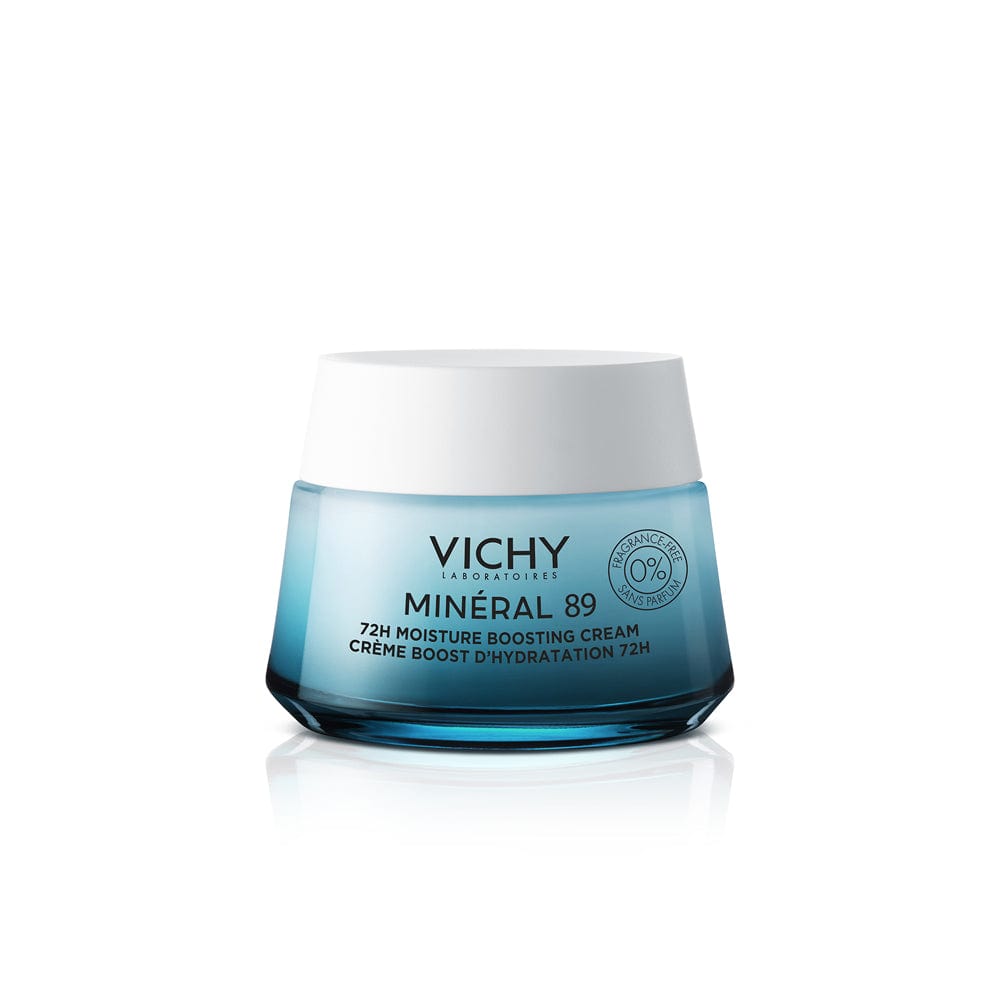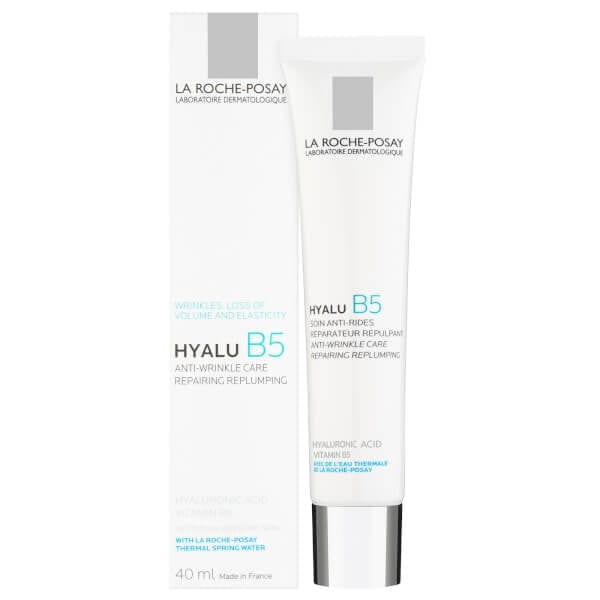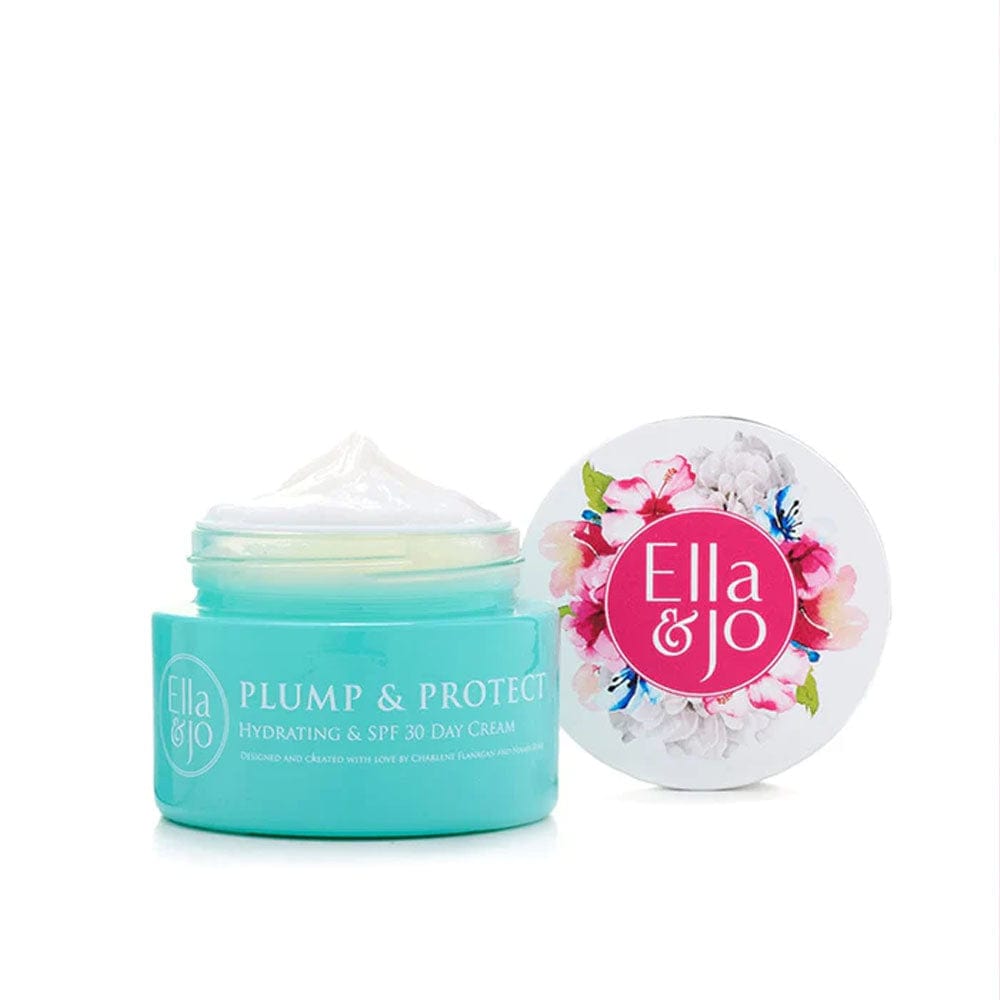As we age, the skin can lose some of its moisture, often leading to noticeable changes such as dry patches and wrinkles. Using a rich, hydrating moisturiser can restore elasticity and improve the appearance of the skin. If you are looking to boost your skin’s hydration, hyaluronic acid (HA) is an ingredient you may have already come across. Known for its ability to hold up to 1,000 times its weight in water, hyaluronic acid can be found in many skincare formulas. Whether you’re dealing with dry patches, fine lines, or just want to give your skin a dewy finish, using a daily moisturiser with HA can help to improve the appearance of your skin.
Here, we take you through the benefits of hyaluronic acid and how to choose the best one for your needs. Plus, we provide some top product recommendations, so you can find your new favourite hydrating moisturiser.
Click on the links below to jump to that section:
Read the key benefits of using hyaluronic acid cream.
Find out whether hyaluronic acid is most effective as a moisturiser.
Read what to look for when finding the best hyaluronic acid moisturiser.
Read our top 3 recommendations for hyaluronic acid moisturisers.
We answer common queries on moisturisers with hyaluronic acid.
What are the benefits of using a cream with hyaluronic acid?

The popularity of hyaluronic acid has never been more apparent, becoming a sought-after ingredient for beauty enthusiasts. Incorporating hyaluronic acid into your skincare routine has many benefits:
1. Hydration
Hyaluronic acid is celebrated for its ability to deeply hydrate the skin. By attracting moisture from the environment and locking it into the skin, it ensures long-lasting hydration. This makes it particularly ideal for those with dry, dehydrated, or combination skin. Angela Foster, a nutritionist, health and performance coach, and founder of My DNA Edge, states “hyaluronic acid retains over 1,000 times its weight in water within the cells of the skin, making it excellent for hydration and helping to plump the skin”.
Looking for more tips on improving dry skin? Read our guide to choosing the best hydrating serums.
2. Plumping & anti-wrinkle effect
Hyaluronic acid has a plumping effect on the skin, which helps smooth out fine lines and wrinkles, leaving the skin looking fresher and more youthful. It’s often used in anti-ageing formulas for this very reason.
3. Creates a skin shield
Hyaluronic acid forms a protective barrier on the skin, helping to defend against external aggressors like pollution and harsh weather conditions.
4. Suitable for all skin types
This gentle ingredient is non-comedogenic, meaning it doesn’t clog pores, and is well-tolerated by almost all skin types, including sensitive and oily skin.
Does hyaluronic acid work best in a moisturiser?
Hyaluronic acid is a water-based ingredient, making it ideal for use in water-based formulas such as moisturisers. While hydrating serums containing HA are popular, moisturisers can provide an additional layer of hydration. Look for moisturisers that list water as the first ingredient and have HA listed near the middle of the ingredients list.
For optimal results, apply your moisturiser to slightly damp skin or after using a hydrating serum. This helps the HA to bind with the moisture on your skin, giving you an extra hydration boost.
Shop our complete range of moisturisers.
What to look for when choosing a hyaluronic acid moisturiser
There are plenty of choices when it comes to choosing a hyaluronic moisturiser and understanding what to look for in a formula can make the process easier.
When choosing your product, consider the following:
Types of hyaluronic acid
- Hydrolysed or low molecular weight HA: This form of HA has a smaller molecule size, allowing it to penetrate deeper into the skin for intense hydration. It’s the most effective for plumping and hydrating.
- Regular hyaluronic acid: This larger molecule hydrates the skin’s surface and provides antioxidant benefits. It also forms a shield to protect the skin from environmental damage.
- Cross-linked or high molecular weight HA: This form doesn’t penetrate the skin as deeply but is great for forming a protective layer on the skin, locking in moisture and guarding against oxidative damage.
Formula considerations
- Look for a water-based formula to ensure maximum hydration.
- Ensure hyaluronic acid is listed in the middle of the ingredients list. If it’s near the end, there might not be enough of it to offer significant benefits.
- It is recommended to choose a product containing multiple types of hyaluronic acid, as each type offers different benefits.
- Additional ingredients such as squalane, peptides, and glycerin pair well with HA and provide extra skin benefits.
Our top 3 hyaluronic acid moisturisers
To make your skincare journey easier, we’ve compiled a list of some of the best hyaluronic acid moisturisers currently on the market. These products are known for their hydrating power and complementary ingredients that enhance the benefits of HA.
1. Vichy Mineral 89 72hr Hyaluronic Acid Moisture Boosting Cream
This lightweight, silky cream from Vichy acts as a glass of water for your skin, moreover, it contains skin-loving squalane, vitamin B3 (niacinamide) and hyaluronic acid.
| Key ingredients: |
|---|
|
| Why We Love It: |
|
| Possible Downsides: |
|

Are you looking for an extra boost for your skin? Add the Vichy Mineral 89 72H Moisture Boosting Daily Fluid to your daily skincare routine for the ultimate hydration.
2. La Roche Posay Hyalu B5 Hyaluronic Acid Cream
A hero brand for troublesome and sensitive skin offers a skin-quenching cream for all skin types. Whether you have dehydrated oily skin or dry patches, this one from La Roche Posay combines soothing B5 and hydrating hyaluronic acid.
| Key ingredients: |
|---|
|
| Why We Love It: |
|
| Possible Downsides: |
|

3. Ella & Jo Plump & Protect Hydrating Day Cream SPF30 50ml
One of our all-time favourite moisturisers is the day cream from Ella & Jo. The moisturiser with SPF protects against harmful UV rays while supplying ceramides and hyaluronic acid for a rich hydration boost.
| Key ingredients: |
|---|
|
| Why We Love It: |
|
| Possible Downsides: |
|

Which hyaluronic acid moisturisers are suitable for very dry and sensitive skin?
If you have extremely dry or sensitive skin, it’s crucial to choose a moisturiser that provides intense hydration while being gentle enough to avoid irritation. We recommend looking for a formula that contains both hyaluronic acid and ceramides to help restore the skin’s protective barrier.
One excellent option is the La Roche Posay Hydraphase HA Intense Rich Moisturiser. This moisturiser combines hyaluronic acid with shea butter and glycerin to provide deep, long-lasting hydration while soothing sensitive skin.
How do you use a hyaluronic acid moisturiser?
To get the best results from your hyaluronic acid moisturiser, follow these steps:
- Cleanse your face thoroughly, ensuring all makeup and impurities are removed.
- Apply the moisturiser to damp skin. This helps the hyaluronic acid to lock in moisture more effectively.
- For added hydration, consider applying a hydrating serum first, then layer your moisturiser over the top.
- Massage the moisturiser gently into your skin using upward motions.
- Always finish with SPF during the day, especially if your moisturiser doesn’t include sun protection.
Frequently asked questions
What should you not use with hyaluronic acid?
Avoid using products with low pH (such as strong acids) alongside HA, as they can reduce its effectiveness.
How long does it take to see results from using a hyaluronic acid moisturiser?
You can expect to see noticeable improvements in skin hydration and texture within a week or two, with full benefits appearing after about four weeks. However, this can also vary depending on your skin type and condition.
By selecting the right hyaluronic acid moisturiser for your skin type and using it correctly, you can achieve softer, more hydrated, and healthier-looking skin. Ready to find your perfect product? Shop our full range of moisturisers and hydrating serums.
Is hyaluronic acid better than retinol?
Hyaluronic acid is primarily a hydrator. It pulls moisture into the skin, making it ideal for plumping and smoothing, especially for dry or sensitive skin types. Retinol, on the other hand, is a form of vitamin A that speeds up cell turnover, reduces fine lines, and helps treat acne. It’s more suited for those looking to improve skin texture, reduce signs of aging, or manage acne. Using both can actually work well together, as hyaluronic acid can hydrate and counteract the dryness retinol might cause.
What happens if you use too much hyaluronic acid?
While hyaluronic acid is generally safe and well-tolerated, overuse can lead to a counterproductive effect called moisture barrier disruption. If too much is applied, especially in low-humidity environments, it can draw water from the deeper layers of skin, leading to dryness and irritation. Additionally, applying thick layers might cause a sticky feeling or pilling on the skin's surface.

